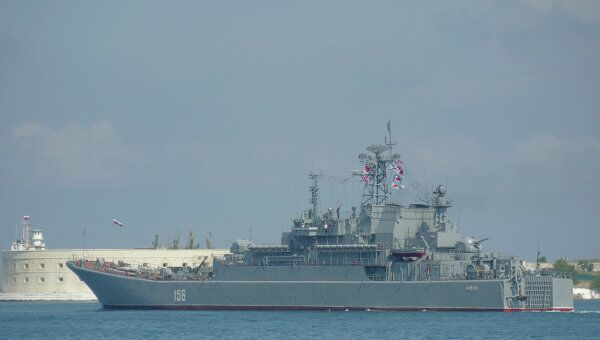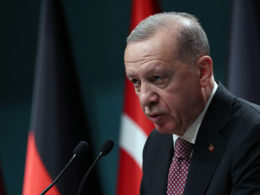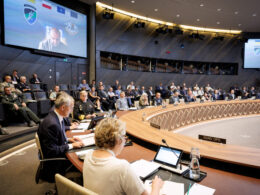Vice Admiral Jeffrey Hughes, deputy chief of staff in the NATO Supreme Allied Command Transformation, said NATO is working on strengthening its defense capabilities and deterring potential Russian aggression in the Black and Baltic Sea regions, according to UkrInform.
He also confirmed that the Alliance has more options to counter Russian threats in the Baltic Sea region following Sweden's and Norway's accession to NATO.
"It simply demonstrates how much stronger we have become with our excellent allies who help us achieve the common goal, namely ensuring that the rules-based international order is upheld," Hughes noted.
According to him, the Black Sea is a "substantial complex of issues that NATO is currently addressing." Hughes didn't reveal the exact strategy for protecting the Black Sea but remarked that the overall concept revolves around ensuring adherence to international order, guaranteeing free and open trade flow in the Black Sea, and complying with international conventions.
Earlier, large-scale naval exercises BALTOPS 24 took place in the Baltic Sea from 7 June to 20. They involved about 9,000 military personnel, 50 ships, and over 80 aircraft representing at least 20 Alliance countries.
The exercises aimed to practice the allied countries' response to potential crises and ensure freedom of navigation and security in the Baltic region.
Read more:
- Military: Ukrainian forces push Russian invaders out from Chasiv Yar’s ‘Kanal’ micro-district
- Russia launches 2,107 strikes on Donetsk Oblast in one day, killing 5 people
- ISW: Russians transferring forces from Donetsk Oblast to Kharkiv Oblast
- British Intelligence: Russia likely achieved limited break-in of Chasiv Yar’s suburb in Donetsk Oblast





